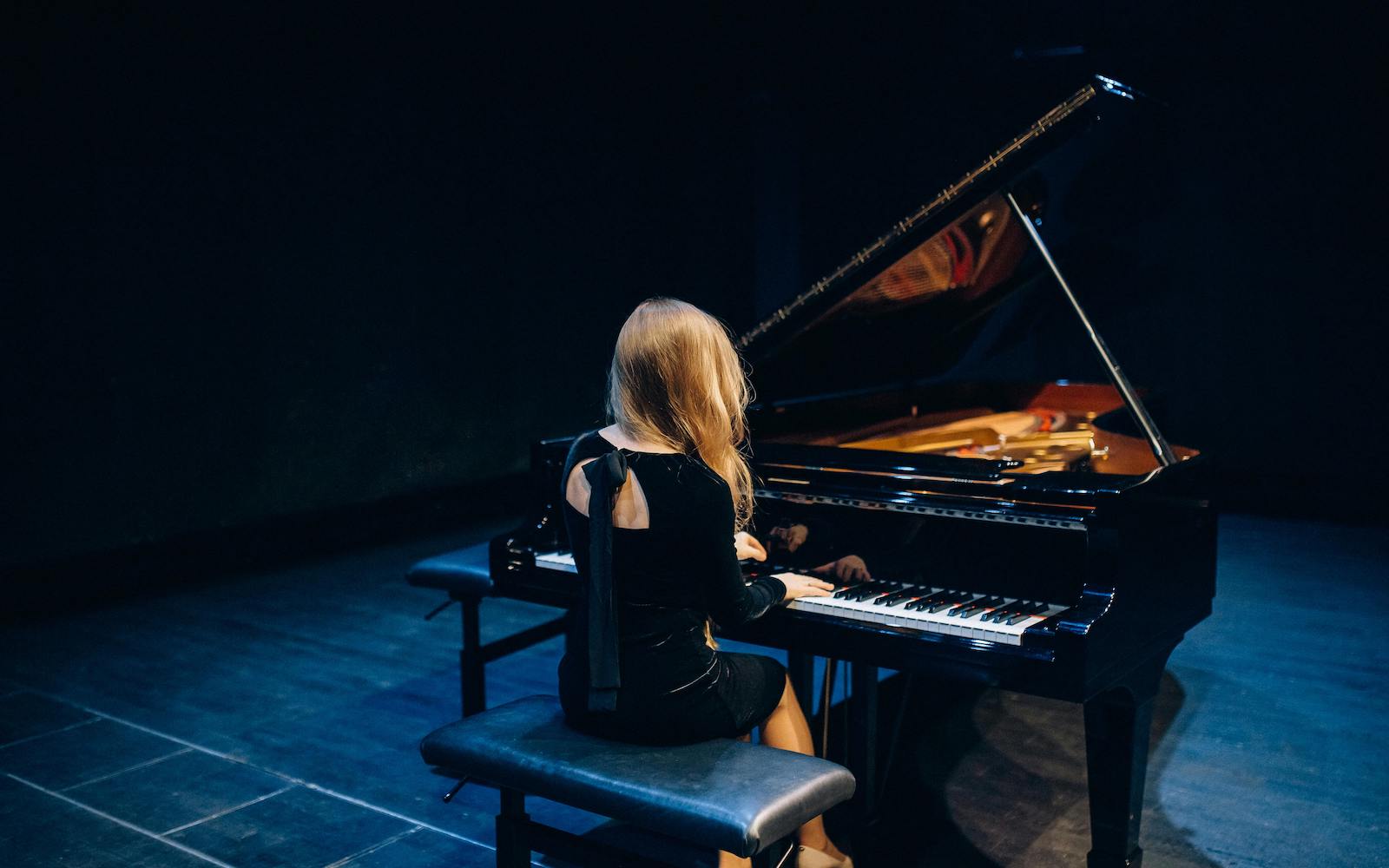Coat off, legs crossed, notepad open.
Drink under the seat – don’t kick it over this time – lights down, conductor onstage. Clapping, applause; very polite, very demure. Quick look around. Yep. Sea of white hair and tasteful cardigans.
I am probably the youngest person here by at least 30 years.
Keep up with the latest music news, features, festivals, interviews and reviews here.
So runs my train of thought at least once a week, as I wriggle into a fold-out seat and scribble my live music reviews (for this very publication, wouldn’t you know).
Unfortunately, my presence within a majority 60+ audience is a constant reality of my interest in classical music, which is fair, given that most works within the Western classical canon don’t lend themselves terribly well to TikTok videos or Trump election memes.
I really can’t say how many Zoomers would rock up to Hamer Hall in lime green tank tops with ‘mozart’ printed on them. The impression of classical music, by and large, is that it isn’t particularly popular.
I’d like to call bullshit on that one.
View this post on Instagram
You might not think so, but classical music is really cool. It’s cool because it’s so difficult to get right. Most symphonic orchestras have anywhere from 60 to 90 musicians, with every player doing different things at the same time.
At the front there’s around 20 violins rushing back and forth through an arpeggio; there are French horns at the back weaving in harmony with the trumpets at the other edge of the orchestra pit; between them, you’ll have a shimmer of percussion keeping tempo; while back down at the front there’s a cluster of double basses striking back and forth in time with the violins.
Most people can’t even rub their stomachs and pat their heads at the same time, so imagine doing all of that for two hours. Even if you don’t like classical music, you can still appreciate that performing in an orchestra requires a huge amount of skill.
It’s one of those things where, if it’s done properly, you don’t recognise how hard it is. But as soon as someone screws up — oof. Nothing makes you bite the inside of your cheek harder than a flautist placing one wrong finger, mid-concert and becoming a soloist for the worst possible reason.
But this is rare, though, almost to the point of never happening in any orchestra worth its salt. The degree of skill and discipline required by classical music does make it something of an elitist institution – but in a good way.
It means that symphony orchestra audiences can expect performances that, in Mary Poppins fashion, are practically perfect in every way. The added enjoyment factor of live classical music is to see these intertwined melodies and rhythms assemble in such an ecstatically emotional presentation.
It’s hard to think how some bits of horse hair and a lump of shiny wood can replicate the sound of the sun exploding, but the Andante from Mahler’s 6th does a pretty good job of showing how it’s done.
The immense range and depth of emotion that can be expressed within classical music naturally lends itself to the silver screen. And it’s why you already like classical music, without having realised it.
Think of the VHS tapes you rewound to oblivion as a kid and how their celluloid frames stamped themselves into your consciousness: Jurassic Park, Harry Potter, The Lord of the Rings… films that defined your childhood and produced earworms that you could hum in your sleep.
None of these themes came out of a computer. They all arrived out of thin air, under the command of the same conductor that supposedly puts anyone under the age of 58 to sleep the moment they walk onstage.
All of the study playlists that powered you through next-day uni assignments were comprised of the same strings, trumpets, bassoons and clarinets that make up the Beethoven concert that, apparently, only Boomers like to attend.
Classical music ascends beyond the narrow conventions of genre. It encompasses so many forms of emotion and expression and can be enjoyed for so many different purposes.
Classical music offers your ears and your soul everything from heart-tearing requiems to window-shattering symphonies that you could just as comfortably blast in the gym as play in your room while folding laundry.
All this to say, you’ve probably enjoyed classical music for as long as you’ve been watching movies or smashing your head against a laptop at 3am – you just didn’t realise it.
For more on classical music in Melbourne, head here.







